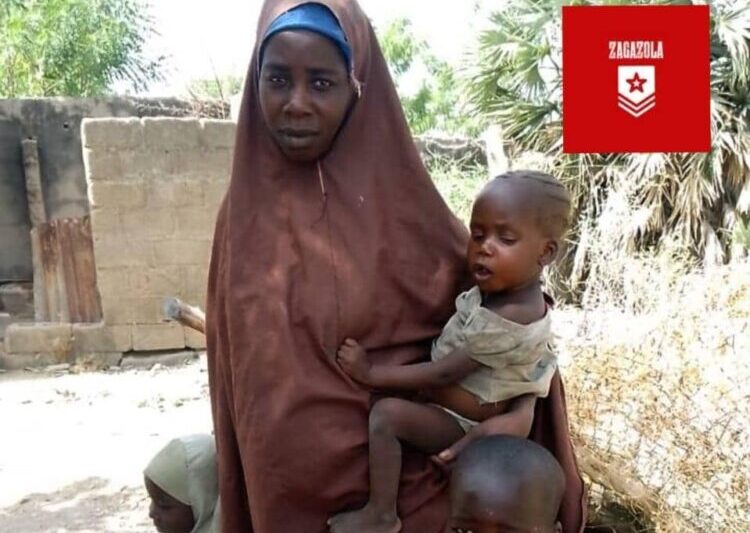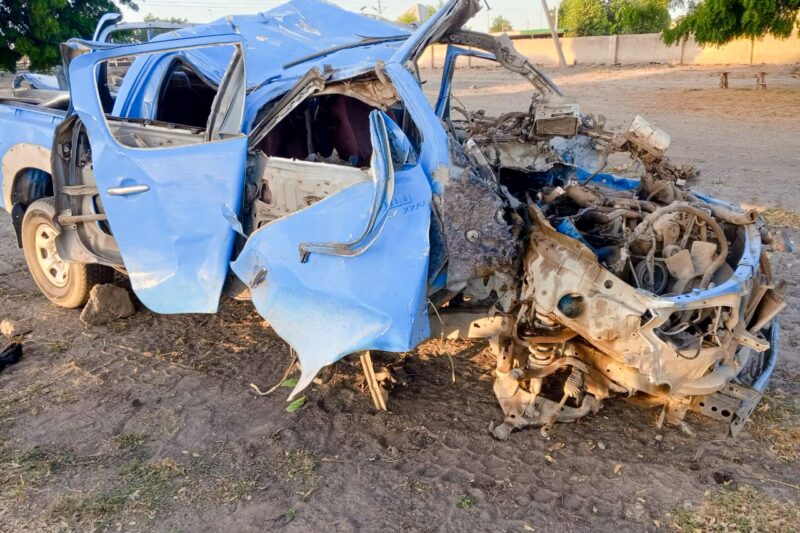Rapes, murders, kidnappings and abductions – these are what threaten farmers in Maiduguri in Borno State every time they go to their land.
Attacks by extremists have got more frequent and more violent and have made life a living hell for farmers.
“We are scared of going on to our land. Almost daily attacks by insurgents have made it virtually impossible for us to work,” a farmer, who asked to remain anonymous, said.
The United Nations said this week that about $1-billion was needed to respond to the humanitarian crisis in the “restive northeast” of Nigeria. It estimated that 5.1-million people were at “risk of acute hunger”.
It said the ongoing conflict between the military and extremist groups was forcing people from their homes and farms. As many as 36,000 people had been killed and about 2-million people had been displaced in the 11-year conflict.
“Longstanding insecurity and violence, compounded by climate change and the impact of COVID-19, are increasing the vulnerability of people.”
Babagana Kalli, an internally displaced person from Konduga, said that when he left to go to the farm in the morning he did not know if he would return to his home in the village, which is about 25km southeast of Maiduguri.
“Many people are too scared to farm because there have been so many attacks. Every time we go to our lands we know there is a good chance that we will be attacked. It is affecting food production and that means scarcity of essentials for all. It also means people will have to pay more for the food that is available.”
Kalli said it was not safe to farm more than 3km from the town. “If your land is further away, you will probably be attacked.”
Because the rainy season is drawing nearer, farmers need to prepare their land and plant seeds, he said. “But we can only do that if the government makes more effort to ensure our security.”
Massa Zarami said farmers were being murdered and women were raped on farms every day.
“I am worried that people like me will starve if we don’t farm. Most of us internally displaced persons have no other source of livelihood. We are poor and hungry. Farming is all we have,” he said.
“We have to speak out. The government must know that women are raped, kidnapped or abducted and farmers are killed every day. The government needs to provide adequate security. It should also empower us by providing funds, agricultural subsidies and implements to help us produce more food. It will help not only us but will help build the economy,” Zarami said.
“The time has come for all residents within Borno communities to ensure they have enough food for their families and society at large. This is the only way to ensure that hunger is eradicated in our homes and throughout the country,” one farmer said.
“The only way to boost the production of food is for appropriate authorities to take steps to ensure that farmers are safe on their lands. If that does not happen the people in Borno State and in the whole country will not have food security,” the farmer said.
- Farm attacks are not new in Borno State. Attacks by extremists, notably by members of the Islamic State in West Africa Province(ISWAP) and the Jamā’at Ahl as-Sunnah lid-Da’way Wa’l-Jihād (JAS), commonly known as Boko Haram, occur on an almost daily basis.
In November last year, in one of the worst massacres reported, more than 100 agricultural labourers working on a rice farm close to Maiduguri were killed in an attack by extremists. Witnesses said the farmworkers were tied up and had their throats slit in what Nigerian President Muhammadu Buhari described as an “insane” attack.








